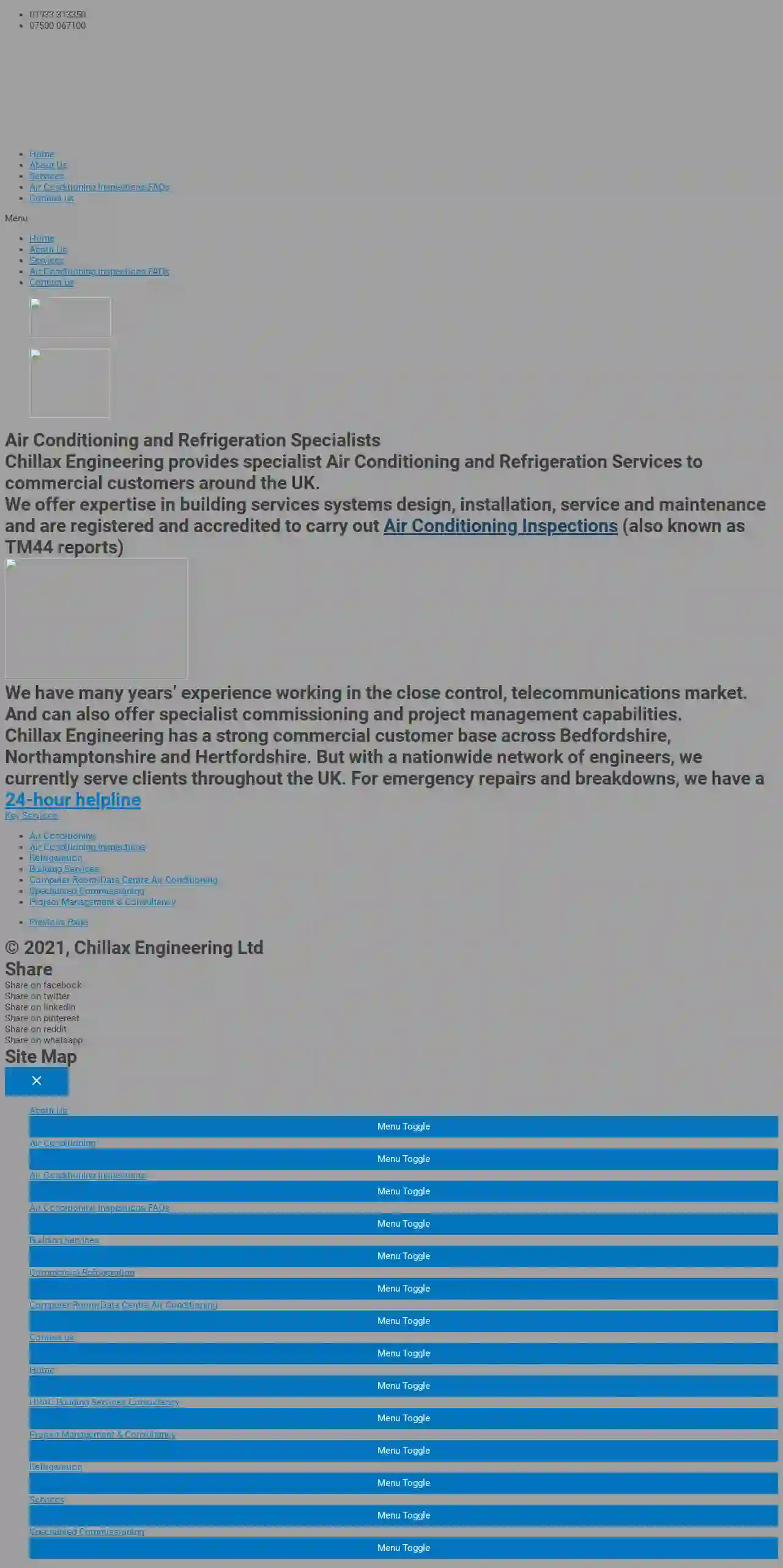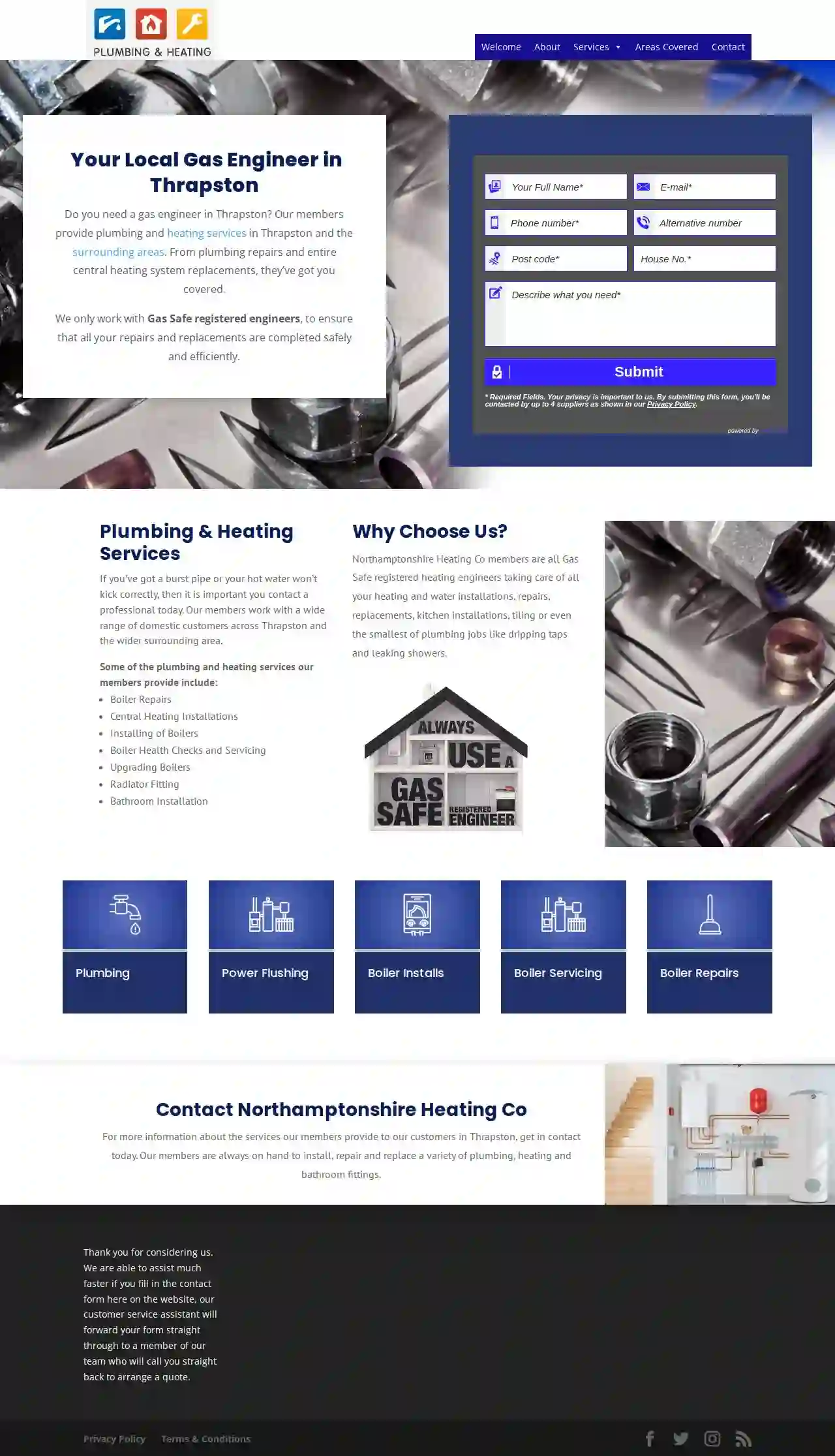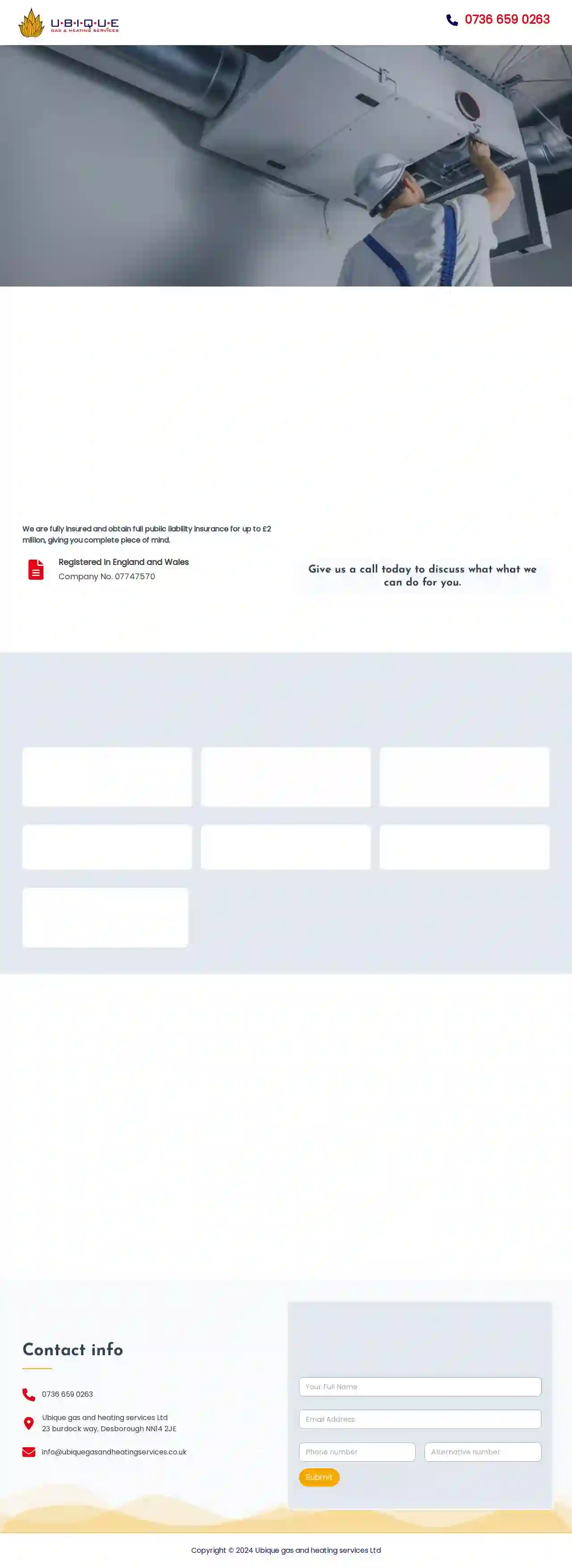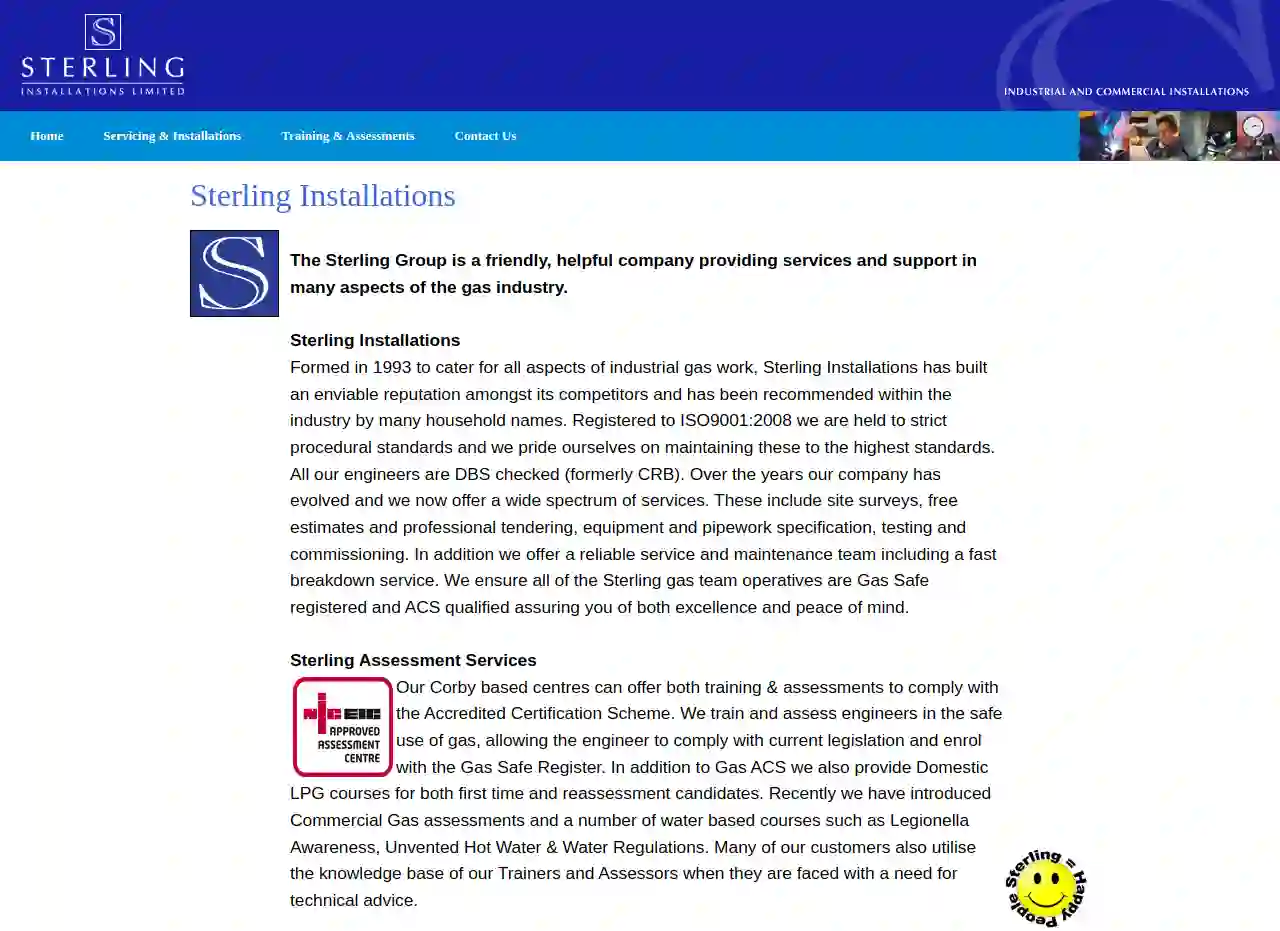Emergency HVAC Deanshanger
Best Emergency Furnace Repair in Deanshanger
Get 3 FREE 24/7 HVAC Repair quotes for your project today! Compare profiles, reviews, accreditations, portfolio, etc... and choose the best service.

Harman Heating
3.318 reviews16, Alwyn Close, Kingsthorpe, NN2 7GD, GBWelcome to Harman Heating Services website. We are a Northampton based local firm of heating engineers with over 35 years of experience. We pride ourselves on our service and workmanship, and only use the best quality materials to conform to the BSI (British Standards Institution) and WRAS (Water Regulations Advisory Scheme) for all the boiler and heating services work we carry out. We have over 200 Checkatrade.com reviews and offer all heating engineer services including central heating installation, boiler repair, boiler installation, power flushing, boiler servicing and boiler maintenance for residential property. We can also provide landlord gas safety certificates and all aspects of plumbing works are undertaken. We offer an emergency call-out service (between 8am to 8pm), and our heating engineers and plumbers are friendly and professional. We have the experience, training and knowledge to offer you a truly comprehensive plumbing, heating and gas service. If you are looking for a reliable and trustworthy local heating and plumbing company in Northampton, then contact us today!
- Services
- Why Us?
- Accreditations
- Testimonials
- Gallery
Get Quote
Bee Cool ACS Ltd
4.6286 reviewsKettering, Northamptonshire, Unit 1, Kettering Business Park, NN16 8XN, GBBee Cool ACS is the UK's largest A/C specialist, offering a range of services including air conditioning servicing, diagnostics, and repairs. With over 20 years of experience, our team is fully trained, licensed, and insured to work on all aspects of vehicle A/C systems. We offer a 'While You Wait' service at our workshop in Kettering, Northamptonshire, and cover Northampton, Wellingborough, Kettering, Corby, and surrounding areas. We accept all major credit/debit cards and offer a 2-year parts warranty on all parts supplied. Our mission is to provide a high-quality service to our customers, ensuring their vehicles are kept cool and running smoothly.
- Services
- Why Us?
- Accreditations
- Our Team
- Testimonials
- Gallery
Get Quote
TF Solutions Ltd, Northampton
4.84 reviewsNorthampton, GBTrusted Air Conditioning, Refrigeration and Heat Pump Wholesaler. Call: 03300415283. We are a leading supplier of air conditioning, refrigeration and heat pump products, with a wide range of products from top brands. Our commitment to you is to provide the best service and product range, with a reputation for reliable customer service. We strive to innovate in every part of our business to help all our customers, large and small, to grow with us.
- Services
- Why Us?
- Our Team
- Testimonials
- Gallery
Get Quote
The Perimeter Heating Company Ltd
53 reviews31 Alvis Way, Royal Oak, Daventry, NN11 8PG, GBThe Perimeter Heating Company is a nationwide expert in building heating and ventilation solutions. Founded by Shane Ord, a former senior design engineer with extensive experience in the industry, the company is dedicated to providing tailored HVAC systems that seamlessly integrate with the client, architect, consultant, and building. Shane's background encompasses illustration, information graphics, visual communication, technical drawing, fabrication, and computer-aided design. This diverse skillset allows The Perimeter Heating Company to offer a unique blend of technical expertise and aesthetic design proficiency. The company's bespoke business model ensures that the engineer designing the system is also involved in every stage, from selection and quotation to product and layout design, delivery, and after-sales advice. The Perimeter Heating Company is committed to delivering high-quality products and exceptional customer service, with a focus on innovation and continuous improvement.
- Services
- Why Us?
- Our Team
- Gallery
Get Quote
Chillax Engineering Ltd
52 reviewsRushden, GBChillax Engineering provides specialist Air Conditioning and Refrigeration Services to commercial customers around the UK. We offer expertise in building services systems design, installation, service and maintenance and are registered and accredited to carry out Air Conditioning Inspections (also known as TM44 reports) We have many years’ experience working in the close control, telecommunications market. And can also offer specialist commissioning and project management capabilities. Chillax Engineering has a strong commercial customer base across Bedfordshire, Northamptonshire and Hertfordshire. But with a nationwide network of engineers, we currently serve clients throughout the UK. For emergency repairs and breakdowns, we have a 24-hour helpline
- Services
- Why Us?
- Gallery
Get Quote
Heating Northampton
Unit 1, 10-12, The Business Centre, Northampton, NN1 1AA, GBNorthamptonshire Heating Co is a network of Gas Safe registered heating engineers serving Northamptonshire and the surrounding areas. They offer a comprehensive range of plumbing and heating services, from small repairs like dripping taps to large installations like central heating systems. Their team of experienced engineers is dedicated to providing safe, efficient, and reliable service to domestic customers. Whether you need a boiler repair, a new boiler installation, or regular servicing, Northamptonshire Heating Co can help.
- Services
- Why Us?
- Gallery
Get Quote
Ubique gas and heating services Ltd
23 burdock way, Desborough, NN14 2JE, GBUbique gas and heating services ltd will accommodate your every need. We provide an exceptional service for a wide range of clients in every aspect of gas, heating and plumbing. We are committed to bringing you a fast reliable service whatever your plumbing and heating needs are. As fully Gas safe registered engineers we make sure all repairs and replacements are completed quickly and efficiently. We are fully insured and obtain full public liability insurance for up to £2 million, giving you complete piece of mind. Registered in England and WalesCompany No. 07747570
- Services
- Why Us?
- Accreditations
- Our Team
- Testimonials
- Gallery
Get Quote
Liberty Plumbing Solutions
4.934 reviewsWold Farm Business Park, Wold Farm, Thrapston Road, Finedon, Wellingborough, Northamptonshire, NN9 5HW, GBLiberty Plumbing Solutions is an experienced and reliable plumbing company providing a full range of plumbing and heating services in Northamptonshire. Experts in central heating installation and maintenance, we can also supply and install underfloor heating systems. From general plumbing emergencies, such as leaking taps or burst pipes, to new complete new bathroom installations, we've got you covered! We carry out gas boiler servicing and maintenance and provide Gas Safety Certificates (CP12) to Landlords, Home Owners and businesses throughout Northants. Call 01933 716019. Your local underfloor heating installers in Northampton, Kettering, Corby, Wellingborough, Rushden & Bedford.
- Services
- Why Us?
- Accreditations
- Our Team
- Gallery
Get Quote
Owen Heating and Plumbing
51 reviewsDaventry, GBWelcome to Owen Heating and Plumbing. We are a professional Plumbing and Heating company serving Northamptonshire, Oxfordshire, Warwickshire and the surrounding areas. With years of experience in the industry, as a company we are dedicated to providing high-quality services for all your Plumbing, Heating and Gas needs. Whether you need a simple repair or a complete installation, we are here to help. Contact us today for reliable and efficient plumbing and heating solutions.
- Services
- Why Us?
- Our Team
- Testimonials
- Gallery
Get Quote
Sterling Installations Ltd
55 reviewsEarlstrees Industrial Estate, 17 Alexander Court, Corby, NN17 4SW, GBThe Sterling Group is a friendly, helpful company providing services and support in many aspects of the gas industry. Sterling Installations, formed in 1993 to cater for all aspects of industrial gas work, has built an enviable reputation amongst its competitors and has been recommended within the industry by many household names. Registered to ISO9001:2008, we are held to strict procedural standards and we pride ourselves on maintaining these to the highest standards. All our engineers are DBS checked (formerly CRB). Over the years our company has evolved and we now offer a wide spectrum of services. These include site surveys, free estimates and professional tendering, equipment and pipework specification, testing and commissioning. In addition we offer a reliable service and maintenance team including a fast breakdown service. We ensure all of the Sterling gas team operatives are Gas Safe registered and ACS qualified assuring you of both excellence and peace of mind. Sterling Assessment Services, based in Corby, can offer both training & assessments to comply with the Accredited Certification Scheme. We train and assess engineers in the safe use of gas, allowing the engineer to comply with current legislation and enrol with the Gas Safe Register. In addition to Gas ACS we also provide Domestic LPG courses for both first time and reassessment candidates. Recently we have introduced Commercial Gas assessments and a number of water based courses such as Legionella Awareness, Unvented Hot Water & Water Regulations. Many of our customers also utilise the knowledge base of our Trainers and Assessors when they are faced with a need for technical advice.
- Services
- Why Us?
- Accreditations
- Gallery
Get Quote
Over 12,692+ HVAC Businesses registered
Our HVAC companies operate in Deanshanger and beyond!
HVACCompaniesHub has curated and vetted Top HVAC Businesses near Deanshanger. Find a top & reliable pro today.
Frequently Asked Questions About Emergency HVAC Services
- Change or clean air filters every 1-3 months.
- Clear debris from around the outdoor unit.
- Check and clean the evaporator coil (if accessible).
- Inspect refrigerant lines for leaks.
What is a dehumidifier, and do I need one?
How do I maintain my air conditioner?
Are emergency HVAC services more expensive?
What is a smart thermostat, and how can it save me money?
What is a dehumidifier, and do I need one?
How do I maintain my air conditioner?
- Change or clean air filters every 1-3 months.
- Clear debris from around the outdoor unit.
- Check and clean the evaporator coil (if accessible).
- Inspect refrigerant lines for leaks.